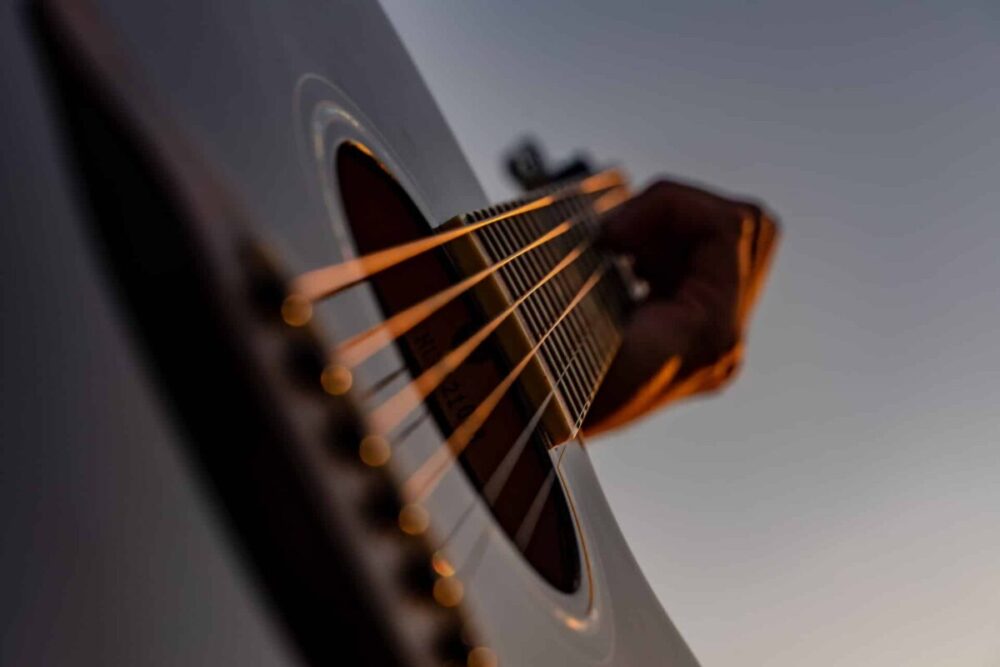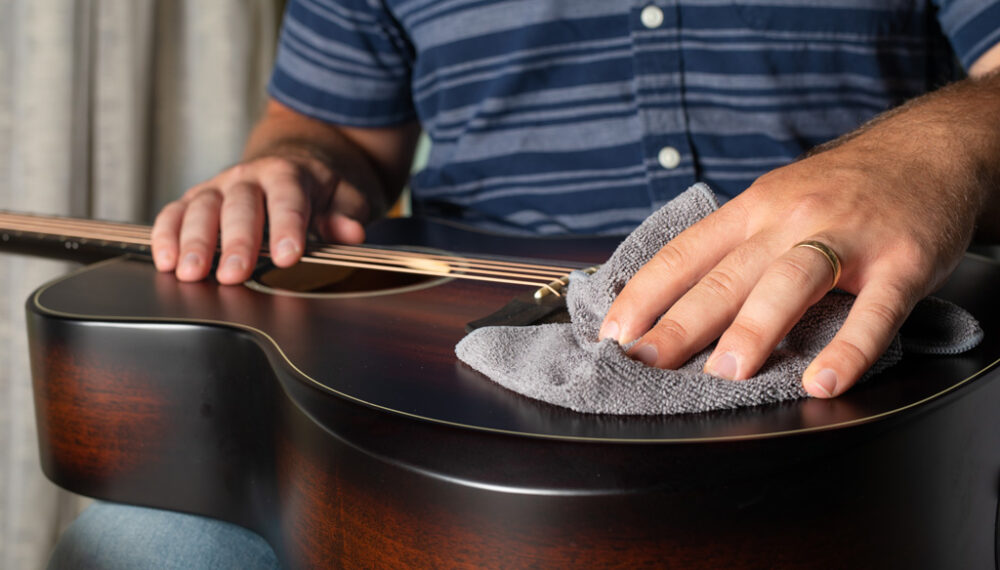
Choosing the right strings for your guitar is crucial, as ill-fitting strings can cause significant damage. In addition to not being able to withstand the tension of the instrument and potentially breaking, if installed too tightly in an acoustic guitar, they can even damage the instrument itself. What types of guitar strings are there? How should you choose strings for an acoustic guitar? Let’s delve into these questions.
Learn How to Effortlessly Play the F#m Guitar Chord by Visiting This Page – F Sharp Minor Chord.
What strings fit your acoustic guitar?
When choosing strings for your guitar, it is important to choose the right type for your instrument. Despite the fact that guitars do not differ much in their construction, the sound does. Often beginners have trouble distinguishing the two instruments from each other. A classic has a wider and thicker neck than an acoustic guitar, and the sound box differs in shape and size. In addition, nylon strings are installed in a classical guitar, while steel/metal strings are used in an acoustic. All these features affect the sound and its quality. On the other hand, when it comes to the technique of playing these instruments, they differ slightly – the type of music played also influences this.
What are the best strings to choose for an electro-acoustic guitar?

If you have an electro-acoustic then you should choose steel strings without the electrical conductors found in strings for electric guitars. A bass-acoustic guitar should also use steel strings with the right bass tone.
Why can’t other strings be installed in an acoustic guitar? It’s simple! Nylon strings won’t hold tension and strumming as well as on a classical, and they will also change the sound, which will no longer be clean and loud. On the other hand, if you install steel strings in an acoustic guitar, you will also encounter a problem with the sound here, plus such strong strings can damage the instrument.
How often should you replace the strings in an acoustic guitar?
It’s hard to clearly define a specific time to change old strings for new ones, as many external factors affect this. Guitar strings are susceptible to humidity, temperature, and the frequency with which they are struck while playing. In fact, a lot depends on the musician, as there are those who replace them almost daily and there are also those who do it once a month. If you play infrequently then the strings can be replaced once every 8 months.
New strings provide the perfect sound and the ability to tune the instrument perfectly. However, if you do not play concerts professionally on a daily basis, then string replacement should be done after noticing the first signs of deterioration, and these are, for example, discoloration, unclean sound, buzzing. It is not necessary to wait until a string breaks to replace it – although there are such amateurs as well, but playing old, damaged strings will not provide good quality music.
What thickness of strings should I choose for an acoustic guitar?

Strings not only differ in the material they are made of, but also in size. There are many types of strings on the market, but what thickness will be suitable for an acoustic? The available thickness of strings for acoustic guitar are: 11-49, 12-53/54 and 13-56, but the most popular set chosen by musicians is 12-53/54. You’re probably wondering what these numbers mean? It is the thickness of the strings given in inches, counting from the thinnest treble E (11) to the thickest bass E (53/54).
For beginning musicians, the best choice would be the 11-49 size, because the thinner the strings, the easier it is to press them against the neck. Despite the fact that the sound will be a little different compared to the standard and most popular size 12-53/54, the learner will not injure his fingertips too much. It is important to remember that the strings are metal and do not easily succumb to pressure, so you need to use some force to hold them firmly.
If you feel that you play the acoustic guitar too easily because you get the impression of soft strings, plus the sound is unclean and buzzing you can choose a larger size. On the other hand, when you play an acoustic and feel too much resistance of the strings to pressure, plus the strings hurt your fingers too much then it is recommended to change to a smaller size. Remember, playing the guitar is supposed to be a pleasure and you don’t need to catastrophize yourself on ill-fitting strings.
What strings should you choose to get a beautiful sound on your acoustic guitar?
If you think that for your acoustic guitar you need to choose only steel strings of a certain thickness then you are mistaken. Good strings for an acoustic have to meet a few other requirements, including performance. There is a large selection of strings on the market from many manufacturers who are trying to improve their products. What strings are good for an acoustic guitar? You need to pay attention to the material they are made of and the technology used in them.
The sound of an acoustic is influenced by many factors, including the alloy that was used to make the core of the strings or wraps, as well as their cross-section. The use of any spacers has a significant impact on sound quality.
The cleanest sound can be achieved with strings made of stainless steel (or a similar metal alloy) with a wrapper with a round cross section. The most common choices are bronze 80/20 strings, which are made of bronze, and phosphor bronze, which are strings doped with phosphorus.
How to take care of strings in an acoustic guitar?

Guitars – and regardless of the type – do not like sudden changes in temperature and too much humidity this also applies to the instrument itself, but also to the strings. The worst enemies are dirt, dust and moisture, so it is recommended that you keep your acoustic in a special case to protect it from these things.
Before playing, you should wash your hands thoroughly and dry them so that you don’t push dirt or sweat into the strings between the wraps. When you are done playing, the strings and the entire instrument should be cleaned with products that are dedicated specifically to cleaning guitars. If you have coated strings then they should be wiped with a dry cloth. These few steps will help you take care of your acoustic guitar and strings and enjoy a long life and beautiful sound coming out of the instrument.
What are coated strings for and what are they used for?
Nowadays on the market you can find extended life strings, which are coated with a special coating that resists all kinds of dirt and dust. Compared to ordinary strings, they last about five times longer, but their price is also much higher than those basic versions. However, the sound of an acoustic guitar is somewhat altered, with musicians describing them as “sterile,” and they also muffle bass tones.
This special coating makes the string slippery which may not suit many musicians accustomed to the roughness of regular strings. Bronze 80/20 and phosphor bronze can also have their surfaces coated with this specialty – you can also buy them in both eleven, twelve and thirteen gauge sizes. Extended life strings are especially recommended for people with sweaty palms. Why? As you know, strings are sensitive to humidity, and a special coating will protect them from corrosion and deterioration.








